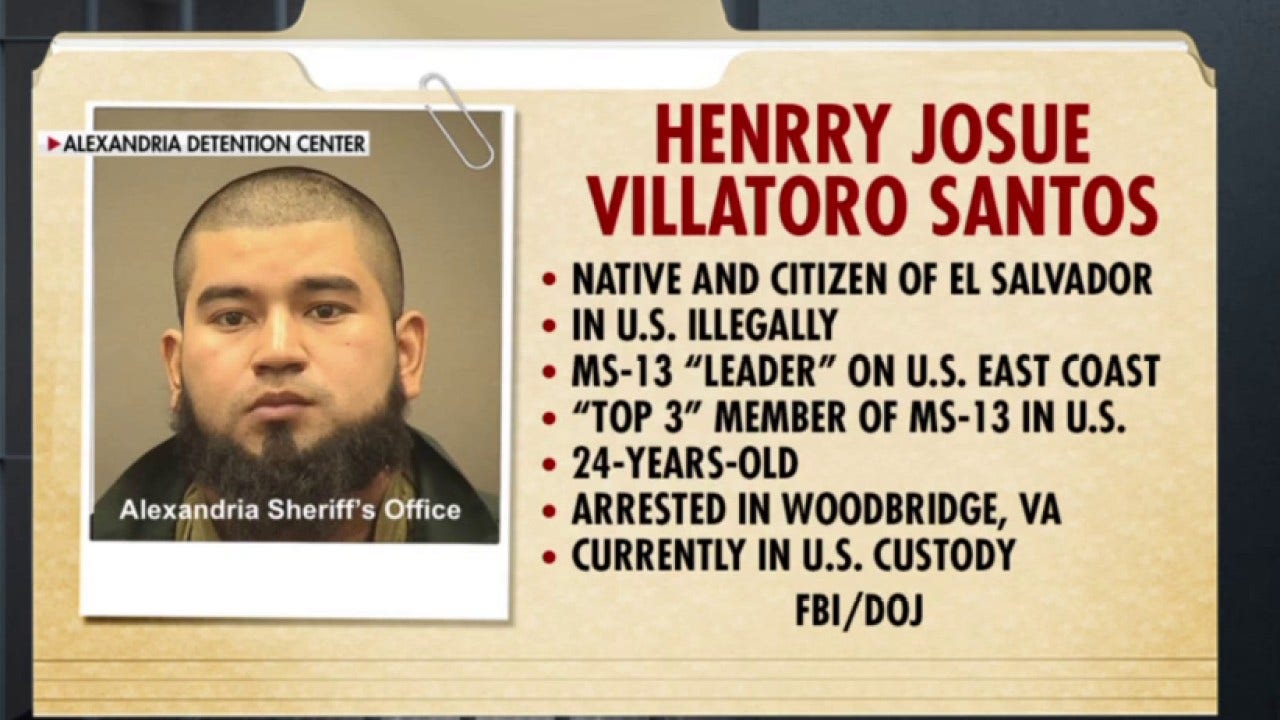US judge agrees to delay dismissal of of MS-13 leader’s case

U.S. District Judge William Fitzpatrick has made a significant decision to delay the Justice Department’s motion to dismiss its case against Henrry Josue Villatoro Santos, a Salvadorian national accused of being a top leader of the notorious MS-13 gang in the United States. The ruling, issued on Friday, directs the government to keep Villatoro Santos in the custody of the U.S. Marshals Service and prohibits his transfer to DHS officials until the appeal is resolved.
Villatoro Santos was arrested less than a month ago in Woodbridge, Virginia, and was charged with being an illegal alien in possession of a firearm. The high-profile arrest was supervised by U.S. Attorney General Pam Bondi and FBI Director Kash Patel from a nearby tactical center. Bondi referred to Villatoro Santos as the “top MS-13 leader” on the East Coast at the time of his capture.
However, shortly after the arrest, the Justice Department unexpectedly filed a motion to dismiss the case against Villatoro Santos, leading to speculation about his future. During an April 15 hearing, his counsel expressed concerns that the Trump administration might attempt to summarily deport him without due process.
Villatoro Santos’ attorney, Muhammad Elsayed, argued that the decision to dismiss the case came from high-ranking officials in the Trump administration and warned that his client could potentially be deported to CECOT, a notorious Salvadorian prison known for its harsh conditions. Elsayed highlighted the case of Kilmar Abrego Garcia, another alleged MS-13 member who was deported to El Salvador last month.
In response to these developments, two federal judges in Texas and New York issued temporary injunctions blocking the Trump administration’s use of the Alien Enemies Act to deport certain individuals. They expressed concerns that the plaintiffs could face removal without the opportunity to seek habeas relief in a U.S. court.
The updates on Villatoro Santos’ case come in the wake of a 5-4 Supreme Court ruling that lifted a lower court’s restraining order, allowing the Trump administration to resume the use of the Alien Enemies Act with new due process protections for migrants. The Supreme Court emphasized that individuals facing deportation must be given the chance to challenge their removal in a U.S. court with adequate time to do so.
In conclusion, Judge Fitzpatrick’s decision to delay the dismissal of the case against Henrry Josue Villatoro Santos reflects the complexities surrounding immigration and national security issues. The legal battle surrounding Villatoro Santos highlights the importance of due process and fair treatment for all individuals involved in such cases.




